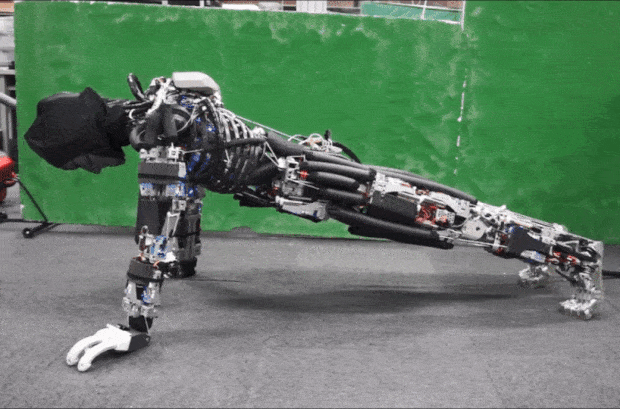Two from IEEE Spectrum:
The Energy Balance of Running
Human beings are great at running because they are stupendous at sweating
During the two years of its monthly appearance, this column has looked at many objects—cars, turbines, airplanes, windows, mobile phones, and nuclear reactors—made by humans. Today’s focus is on the human body, specifically the way it keeps itself cool.
Before the development of long-range projectile weaponry some tens of thousands of years ago, in Africa, our ancestors had only two ways to secure meat: by scavenging the leftovers of mightier beasts or by running down their own prey. Humans were able to occupy the second of those ecological niches thanks, in part, to two great advantages of bipedalism.
The first advantage is in how we breathe. A quadruped can take only a single breath per locomotive cycle because its thorax must absorb the impact on the front limbs. We, however, can choose other ratios, and that lets us use energy more flexibly. The second, and greater, advantage is in our extraordinary ability to regulate our body temperature, which allows us to do what lions cannot: to run long and hard in the noonday sun.
It all comes down to sweating. The two large animals we have mainly used for transport perspire profusely, compared to other quadrupeds: In one hour a horse can lose about 100 grams of water per square meter of skin, and a camel can lose up to 250 g/m2. However, a human being can easily shed 500 g/m2, enough to remove 550 to 600 watts’ worth of heat. Peak hourly sweating rates can surpass 2 kilograms per square meter, and the highest reported short-term sweating rate is twice that high.
We are the superstars of sweating, and we need to be. An amateur running the marathon at a slow pace will burn 700 to 800 W, and an experienced marathoner who covers the 42.2 kilometers in 2.5 hours will burn about 1,300 W.And:
And we have another advantage when we lose water: We don’t have to make up the deficit instantly. Humans can tolerate considerable temporary dehydration providing that they make up the deficit within a day or so. In fact, the best marathon runners drink only about 200 milliliters per hour during the race.
Together these advantages allowed our ancestors to become the unrivaled diurnal, high-temperature predator. They could not outsprint an antelope, of course, but during a hot day they could dog its heels until it finally collapsed, exhausted....MORE
This Robot Can Do More Push-Ups Because It Sweats

...MORE